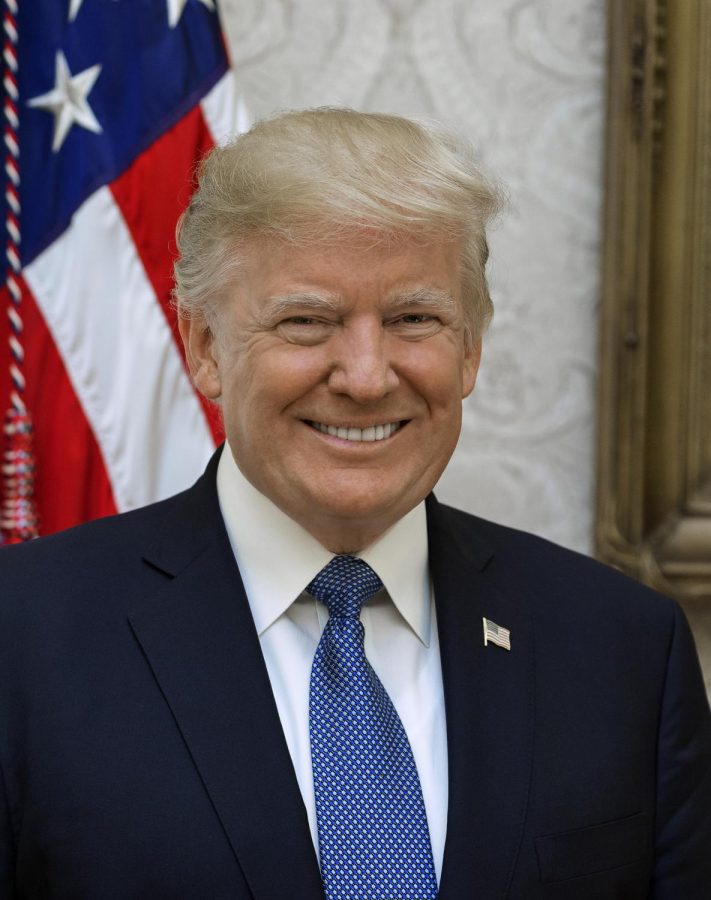Your questions about the Trump impeachment answered
Official White House portrait of President Donald J. Trump taken by Shealah Craighead on October 6, 2017 in Washington, D.C.
February 5, 2020
What is impeachment?
Impeachment is the process which allows officials of the government to be held accountable if they are suspected of offenses while in office.
But what are those qualifying offenses? According to the United States Constitution, “The President, Vice President and all civil Officers of the United States, shall be removed from Office on Impeachment for, and Conviction of, Treason, Bribery, or other high Crimes and Misdemeanors.”
A common misconception is that impeachment results in immediate removal from office; however, impeachment is only the first step. On Dec. 18, 2019, the House of Representatives, the lower body of Congress, voted to impeach President Donald Trump by a majority vote.
It has now moved to the Senate, Congress’ upper body, for a trial. After the trial, if two-thirds of senators also vote yes, only then would the president be removed from office, and Mike Pence, the vice president, would become president.
What are the charges against Trump?
The president is facing two articles of impeachment; (1) abuse of power and (2) obstruction of Congress.
First, due to a whistleblower complaint, we were made aware of a July 25 phone call between President Donald Trump and Ukrainian President Volodymyr Zelensky. Trump asked his counterpart to look into debunked allegations of corruption by Joe Biden and his son, Hunter.
The White House released a rough transcript of the conversation in which Trump said: “There’s a lot of talk about Biden’s son, that Biden stopped the persecution and a lot of people want to find out about that so whatever you can do with the Attorney General would be great. Biden went around bragging that he stopped the prosecution so if you can look into it… It sounds horrible to me.”
At the time of the call, the Trump administration was withholding nearly $400 million in military assistance to Ukraine. That’s where the term “quid pro quo” comes into the picture. The Latin term translates to, “this for that”. Trump essentially said give me an Investigation of the Hunter Biden for my own personal gain in exchange for military assistance (which qualifies as Abuse of Power).
As for Obstruction of Congress, as part of the impeachment inquiry, Committees undertaking the investigation served subpoenas seeking documents and testimony deemed vital to the inquiry from various Executive Branch agencies and offices, and current and former officials.
President Trump directed Executive Branch agencies, offices, and officials not to comply with those subpoenas.
What are the chances Trump will be removed from office?
Almost zero. The Senate has a Republican majority. Twenty senators would have to vote yes, and that is highly unlikely.
Will the trial have witnesses?
On Friday, Jan. 31, the senate voted 49-51 to not hear any new witnesses for this impeachment trial.
How long will the trial take?
Senate rules say the trial needs to happen six days a week until a vote to acquit or convict the president. The trial is expected to overlap with the 2020 presidential campaign and the State of the Union address.
What’s next?
The senate voted on Feb. 5. to acquit, or to clear the charges of the president. For the first article of impeachment, the vote was 48-52. And for the second article, Obstruction of Congress the vote was 47-53. The 67 votes needed to convict were not obtained.







